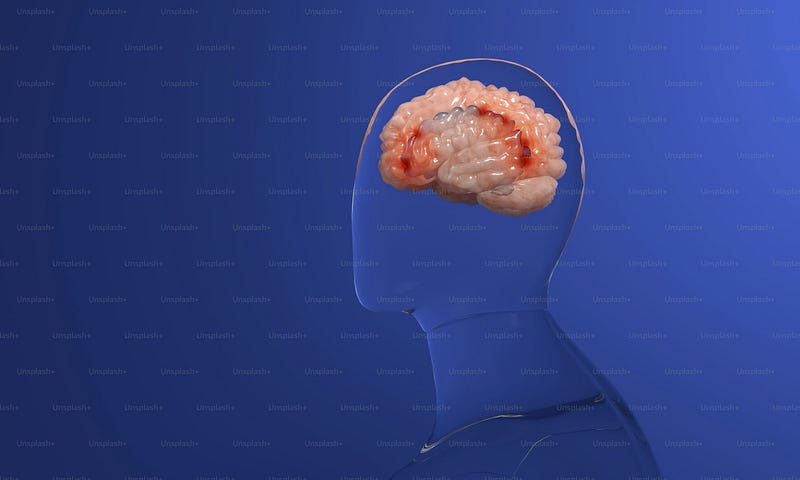Understanding Temporal Lobe Epilepsy: The Role of Psychotherapy
Written on
Chapter 1: Introduction to Temporal Lobe Epilepsy
Temporal lobe epilepsy (TLE) is a neurological disorder marked by repeated seizures that stem from the brain's temporal lobe. These episodes can significantly disrupt daily functioning, influencing cognitive abilities, emotional states, and behavior. The exploration of psychotherapy as a treatment modality for TLE has garnered considerable attention over the years. In this discussion, we will delve into the historical background of TLE and psychotherapy, highlight influential figures in the domain, evaluate the effects of psychotherapy on those affected by TLE, and contemplate future advancements in managing this condition.
Historically, the interplay between epilepsy and mental health has roots in ancient civilizations. For instance, in ancient Greece, epilepsy was regarded as a sacred illness, with seizures interpreted as signs of divine will. Hippocrates, often called the father of contemporary medicine, was among the first to advocate that epilepsy arose from natural brain processes rather than supernatural influences. Over the centuries, individuals with epilepsy have endured stigma and discrimination, primarily due to the mistaken belief linking seizures with mental disorders.
In the 19th and 20th centuries, breakthroughs in neuroscience and psychology illuminated the connections between epilepsy and mental health. The identification of the brain's electrical properties and the emergence of psychoanalytic theory by Sigmund Freud fostered a deeper understanding of the psychological dimensions of epilepsy. Researchers began investigating how seizures might affect cognitive abilities, emotions, and behaviors, leading to the formulation of psychotherapeutic strategies for treating epilepsy.
Section 1.1: The Impact of Key Figures
A pivotal figure in the domain of TLE and psychotherapy is neuropsychiatrist Dr. Norman Geschwind. He was instrumental in examining the link between brain functionality and behavior, particularly concerning individuals with epilepsy. Geschwind introduced the concept that TLE could lead to changes in mood, behavior, and cognitive processing, a phenomenon now referred to as Geschwind syndrome. This theory laid the groundwork for psychotherapeutic interventions designed to tackle the neuropsychiatric challenges faced by individuals with TLE.
Subsection 1.1.1: Psychotherapeutic Approaches

Psychotherapy for TLE encompasses various techniques, such as cognitive-behavioral therapy, mindfulness-based therapy, and psychodynamic therapy. These methods aim to assist individuals in managing the emotional and psychological hurdles associated with epilepsy, enhance their quality of life, and potentially diminish the frequency and intensity of seizures. Research indicates that psychotherapy can effectively alleviate anxiety, depression, and stress in individuals with epilepsy, contributing to improved overall well-being.
Section 1.2: Challenges in Psychotherapy
Despite its potential, psychotherapy for TLE is fraught with challenges. Many individuals may hesitate to pursue therapy due to societal stigma, concerns about judgment, or limited access to mental health resources. Moreover, the debate surrounding the efficacy of psychotherapy in reducing seizure frequency remains ongoing among researchers and healthcare professionals. While some studies suggest that psychotherapy positively influences seizure management, others report inconsistent outcomes or no notable improvements.
Chapter 2: Future Directions in Psychotherapy for TLE
Looking forward, the prospects for psychotherapy in the context of TLE appear optimistic, with ongoing innovations in treatment and support for affected individuals. Emerging technologies such as virtual reality therapy, biofeedback, and neurofeedback present exciting new avenues for tailored and inventive psychotherapeutic strategies. Combining these technologies with established therapeutic practices could enhance treatment effectiveness and yield better results for those with TLE.
This video delves into the diagnosis and treatment of temporal lobe epilepsy, outlining various approaches and therapies that can help manage this condition effectively.
This video discusses the causes, symptoms, and treatment options for temporal lobe epilepsy, providing insights into how individuals can navigate the challenges associated with the disorder.
In conclusion, the historical context of TLE and psychotherapy reflects the convergence of neuroscience, psychology, and medicine. Key figures like Dr. Norman Geschwind have significantly advanced our comprehension of the psychological dimensions of epilepsy and contributed to developing therapeutic interventions. While psychotherapy for TLE shows promise in enhancing quality of life and alleviating neuropsychiatric symptoms, challenges such as stigma, access to care, and optimizing treatment outcomes remain. By embracing innovative technologies and approaches, the field of psychotherapy for TLE is set to experience continued growth and progress in the foreseeable future.